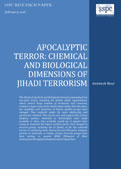Strengthening India’s External Intelligence Infrastructure: An Assessment

In absence of a national security strategy (NSS), the task of intelligence agencies in India has failed to be systemic. India’s intelligence infrastructure lacks a holistic view and very less effort has been put to reorganize intelligence infrastructure on the basis of contemporary threat perceptions. Without a strong security infrastructure country cannot eye towards becoming a regional power. Due to a rigid security system, India has a disparate intelligence mechanism in service. While little effort has gone towards synergizing all sources of intelligence and request dissemination in real time/ near real time basis. This paper attempts to outline a number of points, which would help to develop a more superior external intelligence infrastructure.





